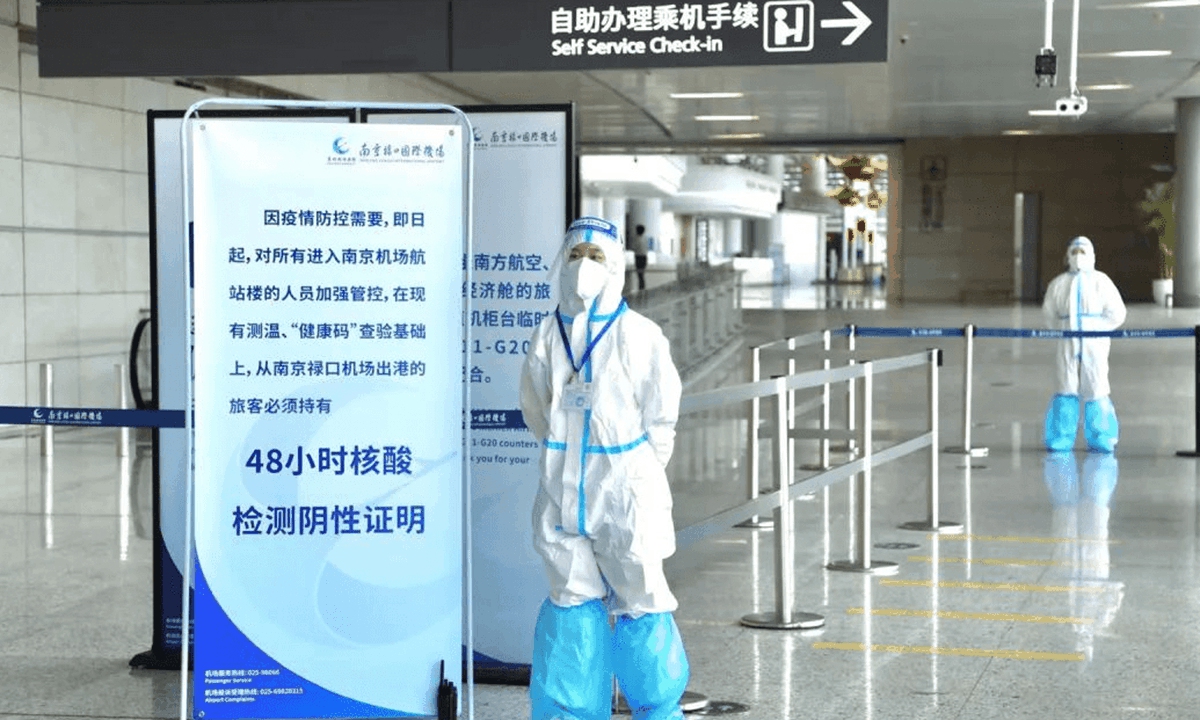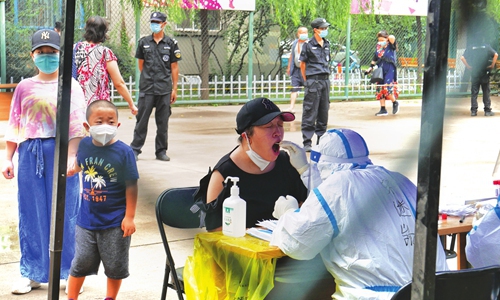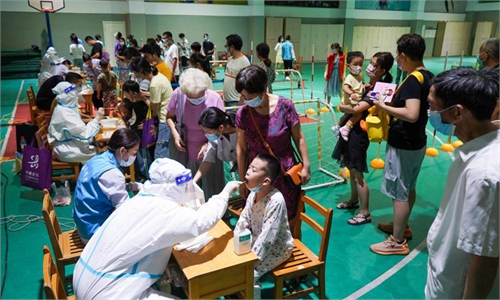
Photo: Wechat account of Nanjing Lukou International Airport
The Civil Aviation Administration of China (CAAC) will implement a closed-end management policy for maintenance workers who are in direct contact with international passengers and cargo. They will make sure that employees who work on international and domestic flights do not have contact and that work or rest areas are not mixed together, Feng Zhenglin, head of the CAAC said on Wednesday.
Besides, the CAAC will increase the frequency of nucleic acid tests for employees and key frontline workers will take one test every two days, he added.
His remarks came at the heel of a recent COVID-19 outbreak in Nanjing, capital of East China's Jiangsu Province, as cases continue to escalate rapidly due to the high population flow at the airport and the strong transmission of the Delta variant.
Considering the new characteristics and changes of the Delta variant, the CAAC will pay special attention to strengthening pandemic control measures on ground service personnel, Feng said.
In particular, the CAAC will strengthen management on contractors who work in airport operation areas while reappraising current pandemic prevention requirements and standards based on the new features of the variant, he added.
Infections in Nanjing were mostly detected in areas near the Lukou airport where the outbreak started, the Nanjing health authority announced on Wednesday during a press conference.
According to media reports, the airport outsourced its cleaning services to external companies, which, aiming to cut costs, did not arrange special personnel for cleaning areas used for international flights.
The total number of cases related to the Nanjing outbreak has surpassed 170 as of Thursday. Besides Jiangsu, cases have been reported in at least 13 cities in five provinces, including South China's Guangdong and Southwest China's Sichuan.
Zhangjiajie, in Central China's Hunan Province, has become the hot spot of the COVID-19 epidemic in China. Beijing reported on Thursday noon that two persons who traveled to Zhangjiajie tested positive for the virus.



